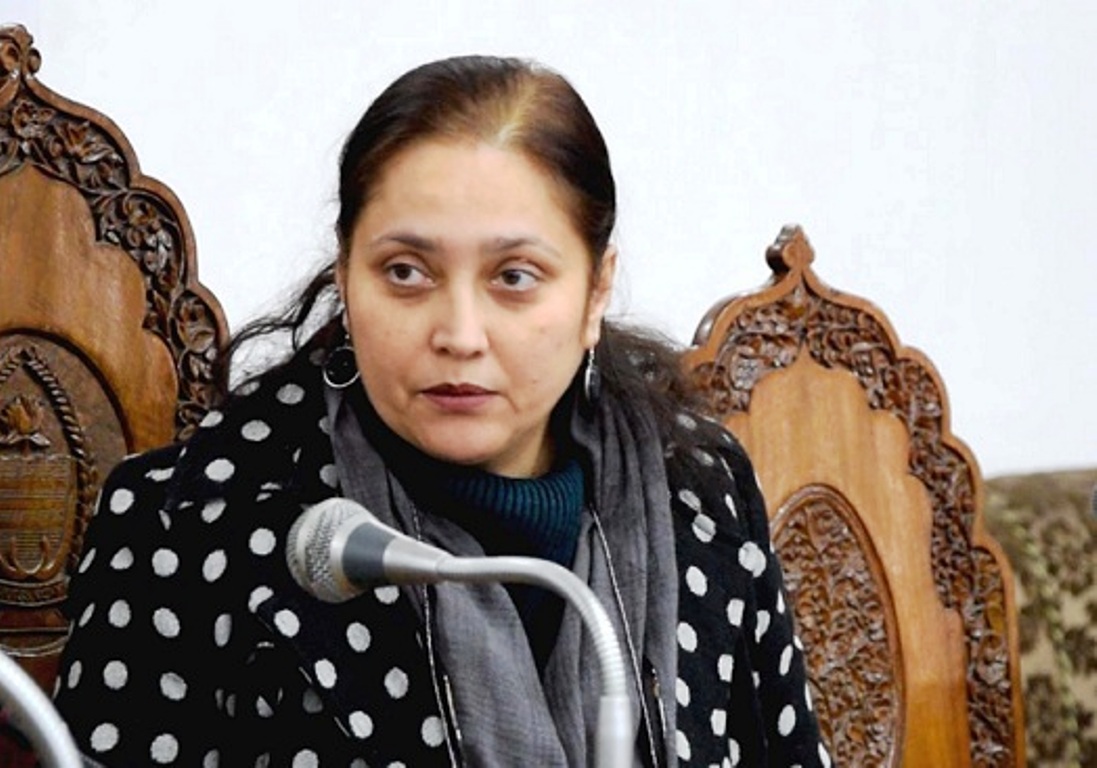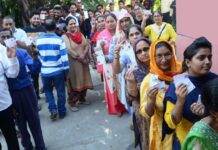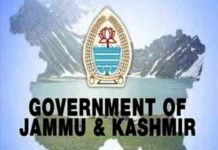Srinagar
Secretary, Department of Rural Development and Panchayati Raj, Sheetal Nanda on Tuesday said that convening public grievance camps by the Government functionaries in the twin capitals of Jammu and Kashmir is vital for boosting the confidence of the people in the Government functioning.

“Those people who can’t report to the Civil Secretariat for getting their grievances resolved get the biggest relief when Advisors and senior Government functionaries convene public grievance camps and do their best to fix the problems on the spot,” Nanda, said while convening a public grievance camp here today.
“The biggest success of such initiative is when people are being heard and they speak out their heart out and expect that their grievances and issues are addressed on priority,” she said, adding that the Administrative Secretaries in Jammu and Kashmir would be staying connected with people to provide governance to people at their doorsteps.
Speaking to various deputations during the public outreach programme held here, Nanda said that Government has started a novel initiative of reaching out to the people—primarily for addressing their grievances and also providing them with better service delivery.
During the programme, several deputations from Baramulla, Ganderbal, Pulwama, Budgam, Srinagar districts apprised the Secretary about their issues and demands. The Secretary gave a patient hearing to the deputations and assured them that all their genuine issues would be looked into and addressed accordingly.
She urged people to come forward and register their grievances, saying that the Government keeps an eye on the developmental needs of the people. However, she said, large participation of people in the governance process can bring laurels in the services delivery system besides making it more accountable and transparent.
She assured several deputations who were demanding posting of full-time Block Development Officers in their respective blocks that Government would be soon taking steps on this. She directed the officers that the issues of public importance must be addressed on priority and they must get hassle-free services from the department.
Divulging details about various ambitious schemes with the Department, the Secretary urged people to come forward and avail benefits of several centrally sponsored schemes. She said that the Government was taking several measures to provide services to the beneficiaries under these schemes.
Giving details about the Department of Rural Development and Panchayati Raj, Nanda said that the Department is charged with the responsibilities of development of rural areas by providing various basic facilities to the rural population and provide jobs to the labour class.
She informed that the Government was ensuring to implement development programmes for Jammu and Kashmir which include overall development of one village in each block as a model village by way of creating necessary infrastructure so as to change the outlook of villages. The department was aiming to minimize the Rural- Urban divide by creating vital connectivity, which could improve the quality of rural life. She said that the officers have been asked to ensure the optimum utilization of resources available under various schemes.
Nanda said that Panchayats have been the backbone of the villages since the beginning of history. She said that the Panchayati Raj Institutions (PRIs) ensure the participation of the people in the rural development programmes, decentralization of planning, better enforcement of land reforms, translating the concept of bottoms-up rule into reality.
She said in Jammu and Kashmir, Panchayati Raj was enacted in 1989 almost four years before 73rd Panchayati Raj Amendment Act, 1993. The PRIs provides for 3-tier government—Halqa Panchayats, Block Development Council and District Development and Planning Board for the villages, block and district respectively.
Nanda said that Department was aiming to generate wage employment, to create durable community assets and rural infrastructure, to reduce the number of people living below poverty line and improve the living standards of rural poor and to provide houses to the rural houseless families living below poverty line.















